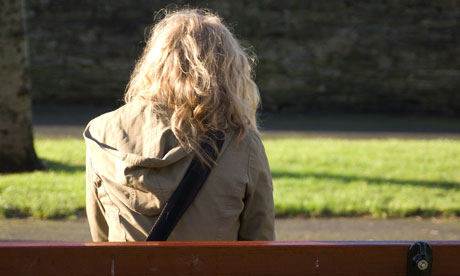
Paula Franklin, global medical director at Marie Stopes International
Abortion is an economic issue: it might be the case that the current financial issues are preventing some women from travelling, so a situation might be occurring where those who can afford it can access care, while others can't.
Medical abortion pills bought online carry risk: outside of the few reputable providers you can never be 100% sure what you're getting. Access to high quality, professional advice and aftercare is also crucial, and our fear for women buying medical abortion drugs online is that they may not seek this out if needed.
Talk to young people to find out what they want: services must be designed around their answers. For example, the location of clinics, opening hours, the kind of non judgmental attitude they are looking for in the healthcare professionals who work there - this differs from country to country, there's no one size fits all approach.
Mara Clarke, director of the Abortion Support Network
Falling government abortion statistics can be misleading: we know of many women who give the address of a friend or relative or a fake address, plus literally hundreds if not thousands who have accessed early medical abortion pills online, or worse, who self aborted in other more dangerous ways. As well as women who go to Amsterdam and Brussels for abortions. And women who have wanted abortions but who could not afford them who had unwanted children.
Abortion provision is a postcode lottery: in England, Scotland and Wales where abortion is supposedly available, there is a postcode lottery of provision as there is with many areas of healthcare. That said, as an American living in the UK, the provision of sexual and reproductive health care here is much better than it is in the US, provided you either have a pro choice/informed GP or know where to look.
Laura Hurley, senior project worker at Brook
Abortion is taught in RE as an abstract, moral issue: a big part of the problem is that teachers are feel anxious about teaching about abortion, so they are pleased to accept the offer of free speakers who cover the topic. Unfortunately, it is mainly anti-abortion groups which provide this service. We try to encourage teachers to deliver the lesson (whether it be PSHE or RE) themselves, using resources from reliable sexual health organisations.
Crisis pregnancy centres are barriers to accessing unbiased care: Independent counselling centres for pregnant women are nearly always run by anti-abortion organisations. Our own research suggests that a worrying number are giving out false, biased information on abortion. Some of these centres deliberately target young women, and a visit to one of these centres could be a real barrier to accessing timely abortion care.
Emma Campbell, member at Alliance for Choice
In Northern Ireland sex education in schools is incredibly poor: this is mandatory but at the discretion of heads who often call in lobbying or religious groups who do not give young people the full and unbiased story about what is available. Many young people come to university in NI without even the most basic knowledge of contraception and STI prevention, never mind abortion services.
Media stereotypes must be challenged: soap and film storylines where abortion features, are often wildly inaccurate and never illustrate how relieved many people are once they have had the abortion they wanted. We need to try and be less judgemental and more practical.
Doortje Braeken, senior adviser on adolescents and young people at the International Planned Parenthood Federation
Provide support in a medium relevant to young people: we should find ways of educating on abortion and where to get information and access without intermediaries like teachers or educators using mobile technology or online for instance.
In America access is becoming increasingly difficult: due to the well organised and well funded anti-choice groups and policticians who endorse their ideology. In sub-Saharan Africa, the issue of abortion is being overshadowed by HIV prevention and other issues. However, at this moment, in some countries there is increasing recognition to have a more comprehensive sexuality education approach which includes abortion and access to services.
Abortion has hidden costs: even though abortion is free to access in the rest of the UK, there may be costs associated with needing to travel and to find childcare. This is especially true for the minority of women who are accessing abortion later on in pregnancy. Many will need to travel out of their local area to do so.

